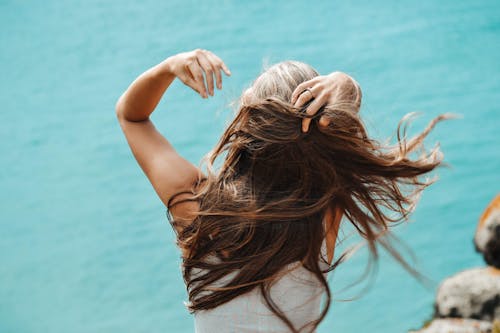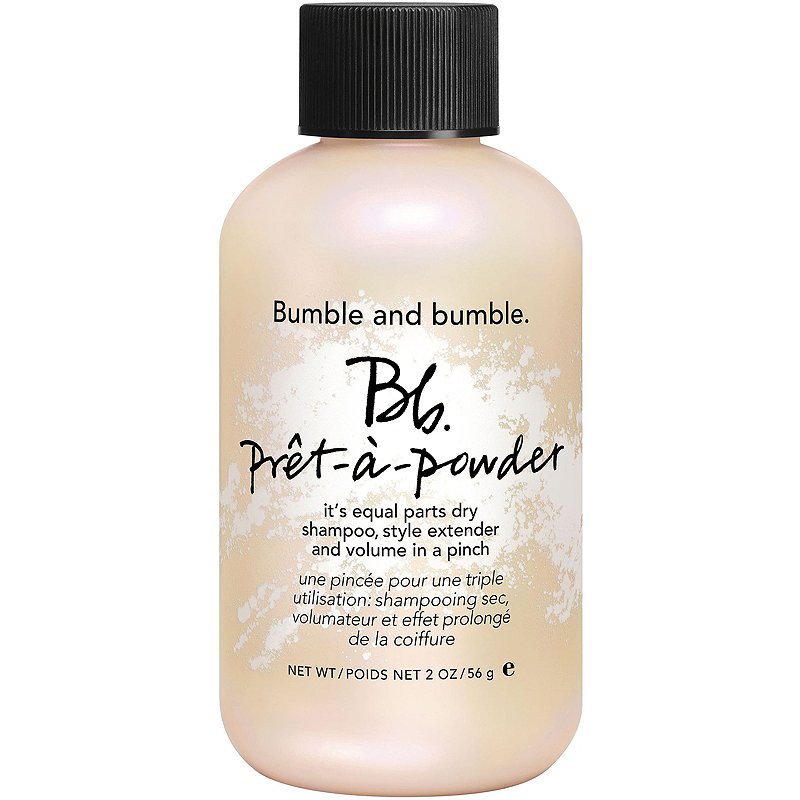
Is scalp training the solution to your oily scalp problem?
Have you heard of scalp training?
If you suffer from greasy hair, you probably have. You’ve probably endlessly googled how to do it, what products not to use, the routine of wash days vs styling days and decided, on the whole, you’re not brave enough to try it.
Very fair. It’s a daunting task.
Going a week without washing your hair? Is that normal? Is that even something we should be aspiring to?
Well, turns out, for some people’s scalps, it could be the key to reducing oil production which makes our hair greasy. It’s a theory that’s been around since the fifties and though numerous studies were conducted at the time, a lot of them came back with inconclusive results.
But what is a sure thing is that a lot of us apparently wash our hair too often, according to hair dressers, which is probably what has seen the resurgence in scalp training occur these last few years.

There are lots of reasons why your scalp might be producing what you think is an excess amount of oil. The ingredients in your hair products might be drying out your scalp, causing oil glands to overproduce sebum. If you’ve recently come off hormone-regulating medication, that can cause overproduction. If you’re using heat on your hair too often, that can cause the scalp to react and attempt to keep the roots moisturised by overproducing.
The point is, there could be any number of reasons. But the point is, that maybe if your scalp is producing that much oil, it might need it.
So scalp training allows your hair to get greasy with its natural moisture, rather than constantly washing it away. By putting an end to drying out your scalp every day or two by washing it, the idea is that your scalp will gradually produce less oil and you won’t have to wash it as often.
There are different levels of scalp training, varying in their severity. Some go cold turkey on all products that contain sulphates and alcohols that dry out the scalp, with a specific ban on aerosols. That means dry shampoo, hairsprays and texturisers like your beach waves or mousse are gone.

On top of that, the more extreme training will instruct you to only wash your hair once a week. Others recommend every three to four days, using gentle moisturising products. And generally, it seems to be recommended that you lay off the heated styling tools as much as possible, if not entirely.
But one of the major game changers is the shampoo you use. Your scalp likely has build up if you’ve been using heavy or drying products, so the key to cleansing it by getting rid of that build up that causes the root of the hair to feel flat and heavy.
A clarifying shampoo like Redken Detox Hair Cleansing Cream, is specifically designed to remove any sort of oil lingering on your scalp and strands. It purifies hair by instantly removing product buildup, hard water minerals, and pollution residue, and strengthens your hair as you lather to leave it looking shiny and healthy. Following it up with a deeply moisturising shampoo is key as that seals the cuticles of the hair closed and allows your ends to retain the moisture that your scalp is trying to give them.

For the days in between when you’re feeling oily but are still a few days off from a wash, a powdered dry shampoo, rather than an aerosol is recommended to lightly dust your roots for a little more bounce and to get a day or two more out of your hair. Bumble and bumble’s Prét-à-powder is a good choice because it’s equal parts dry shampoo, style extender and volumiser all in one, so it ticks every box. It’s great for all types and textures of hair, especially oily of course, but it also works well in fine hair for giving it a little extra boost. If you’re used to the aerosol shampoos, this one might feel a little strange at first but it’s essentially the same idea. Shake the powder gently at roots and massage it in (like you would a shampoo) to create instant lift and make yesterday's style ready-to-wear again, giving your hair more style between washes.
The scalp training method works for some people and not for others, because there’s any number of factors that can contribute to an oily scalp; body, hormones, diet, the environment and your shampoo can all affect your oil levels, so no two scalps are the same. But still, if your scalp’s oiliness is really affecting you, you’ve nothing to lose by giving scalp training a go!







